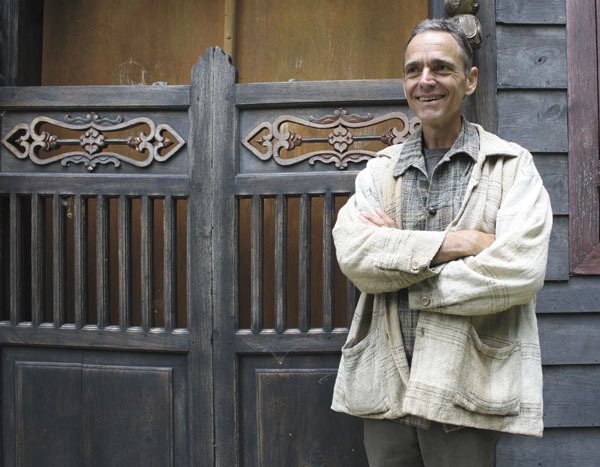To visit David Smith’s house on Vashon is to step back through the mists of time to a magical land far across the ocean.
Smith has spent the past 16 years creating one of the most remarkable properties on Vashon — a place with lavish gardens, antique gates and stone pathways, leading to a 200 year-old Chinese house and a 100 year-old, intricately carved Javanese house, both adorned with teak antiques.
Both houses were purchased by Smith in Indonesia, and then dismantled, shipped and painstakingly restored on Vashon.
Islanders will soon get a chance to step into this world, thanks to two events on Vashon this weekend.
On Friday, Smith will give a talk at the Vashon Bookshop and recount how he has spent decades following his passion for collecting and making connections in some of the most remote regions of Indonesia.
And on Sunday, the Javanese house, known as Kudus House, will be the site of a concert of traditional and experimental Javanese music by the ensemble Triloka.
The bookstore event is a showcase for “Javanese Antique Furniture and Folk Art,” a new book that details Smith’s remarkable collection of intricately carved and painted village furniture.
The lavish coffee table tome, published last year by Editions Didier Millet and written by Bruce W. Carpenter, contains a wealth of vibrant, full-color photographs of pieces in Smith’s extensive collections, as well as insightful commentary about the history and culture of Indonesia.
The story behind the book began years ago, when Smith, who grew up in Pennsylvania and New England, became interested in antiques at a tender age.
“I had a furniture business when I was 11 years old,” said Smith, recalling his first antique purchase — a Pennsylvania dry sink that he bought for $35 and then refinished and sold for $50.
After that, Smith was hooked.
“For the next five or six years, I was passionate about antiques, and I would ride my bicycle to estate sales and climb around in old barns,” he said.
But in time, other adventures drew him away from furniture. Smith, a thin, soft-spoken and charismatic man who looks much younger than his 57 years, has lived a remarkably colorful life, traveling the world, studying meditation, teaching yoga, and indulging his sharply entrepreneurial instincts in a variety of small businesses and enterprises.
His love of furniture resurfaced in the late 1980s, when he traveled to Indonesia for the first time and began buying delicate screens intricately carved in teak, brightly painted cabinets and mystical carved figures made by unknown craftsmen in the 19th century.
Smith said he was determined to keep as many of the pieces as he could.
“I always regretted that when I was a child, I hadn’t kept some of that furniture,” he said. “I said to myself, ‘I think I’ll keep all the best pieces.’”
Over the past 20 years, Smith has put down deep roots in Indonesia, opening a furniture building workshop in Blitar, a town in East Java, that employs almost 100 people, and founding David Smith & Co., a successful Seattle business that sells the furniture designed and built in Blitar.
For Smith, it’s all been part of a life he said has been filled with grace.
“I love beautiful things, and I’ve had this opportunity to live such a creative life,” he said. “I feel so blessed.”
Smith said he is also preparing to let go of many of the pieces depicted in the book, most of which are now stored in a warehouse in Indonesia.
Within the next year, he plans to have a major sale in Bali of most of the pieces, and he said he hopes that they will remain in Indonesia.
“Catch and release,” he said with a smile. “My hope, with all these things I’ve accumulated, is to end up with just a few pieces that I use and enjoy everyday.”
The talk will be at 7 p.m. Friday, Sept. 10, at Vashon Bookshop. Free
The Triloka concert will be at 3 p.m. Sunday, Sept. 12, at Kudus House. Call 463-3505 for directions and reservations. Admission is $5 to $15.


